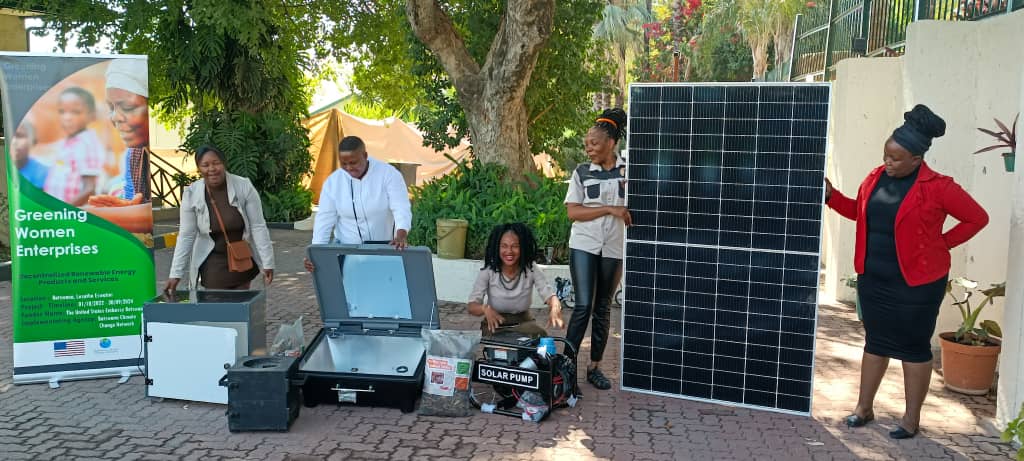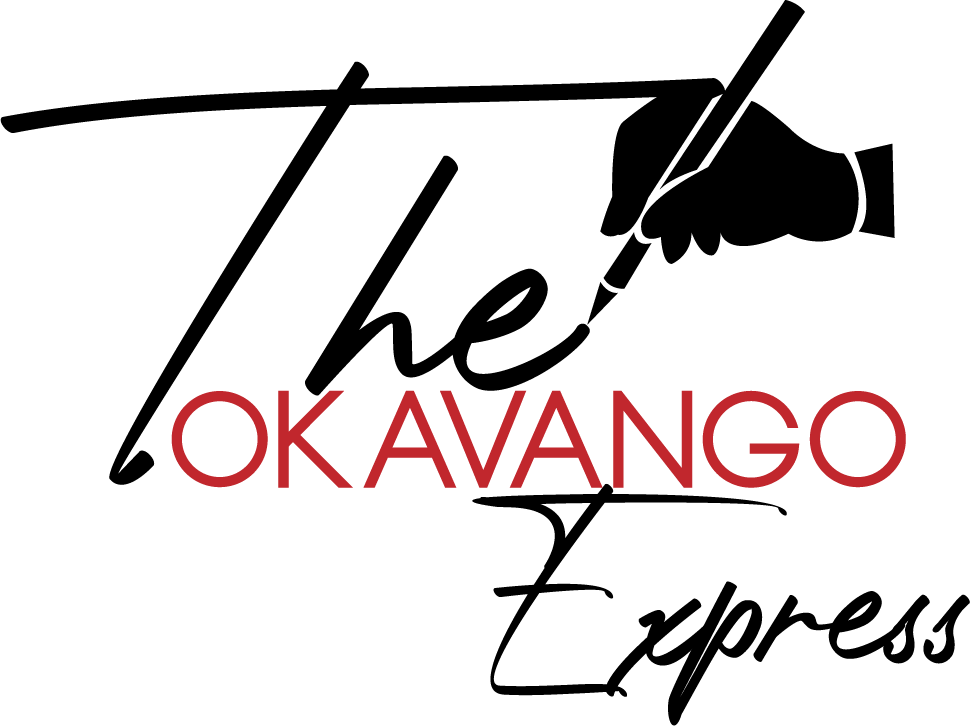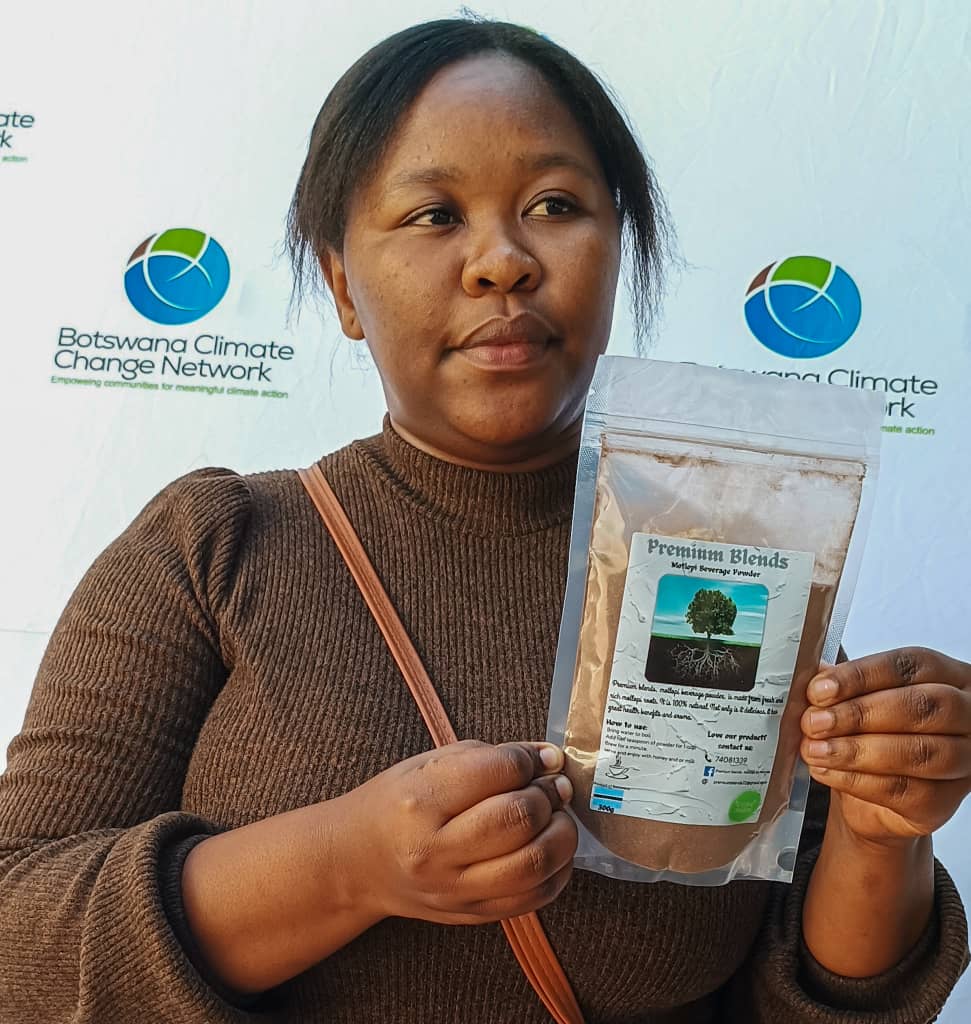One woman who makes a living from the Shepherd tree, or Boscia albitrunca, also called Motlopi in Setswana, is Unomosa Dichabe.
The Shepherd tree is an evergreen native to Southern Africa.
While pursuing her studies in Jwaneng in 2017, Dichabe came across Motlopi coffee. She revealed that she used to have severe period cramps and that a friend had advised her to drink Motlopi coffee as a remedy. Purchasing it got her out of her situation.
The young woman fell in love with the coffee that soon she learnt how to make the product. After finishing her National Craft Certificate and failing to get employment she decided to venture fully into Motlopi coffee making.
With her mother, Dichabe started Premium Blends, a firm that presently employs four people and produces coffee from Motlopi, a tree famous as ‘the tree of life.’
Although her coffee is primarily sold in Gaborone, it is manufactured in Tonota, with intentions to expand sales throughout the entire nation.
She clarified, saying, “Motlopi coffee is organic and free of caffeine. It is suitable for all ages, but people with heart problems or those who are worried about their health should specifically consume it. It is non-addictive and relieves fatigue.
Dichabe uses the roots of the Motlopi tree to manufacture coffee, but she is growing more conscious of how climate change may affect her company.
Dichabe reiterated: “We don’t get as much rain as the nation did in the past.” Due to our reliance on naturally growing trees, it is critical that we comprehend climate change and take action to save the ecosystem.
The “Greening Women Enterprise”

The “Greening Women Enterprise” project is project supported by the US embassy and helps women like Dichabe at the local level to access finances and resources for climate change mitigation.
The two-year project, which began in October 2022 and was implemented in Botswana, Lesotho, and Eswatini, aimed to test the usage of environmentally friendly products in support of the three nations’ transition to low-carbon, climate-resilient development.
In Botswana, the project, was carried out by the Botswana Climate Change Network (BCCN.) The organization, assisted underprivileged women who were mostly dependent on fuel wood for lighting and cooking.
Dichabe was one of the four women selected by BCCN in 2023 to benefit from the project in Botswana, and the US Embassy, along with BCCN, recently gave her a solar-powered dryer for her company.
Dichabe used depend on the sunlight to dry the leaves for the coffee before the got the solar dyer.
‘’Cloudy days can make things difficult and cause leaves to rot, but they can also impair our output and negatively impact our business. So going ahead, this dryer will simplify our lives, she said.
The climate crisis and gender equality are inextricably linked, according to US Environment, science and technology specialist for Southern Africa Hub Phatsimo Kwenane. She cited growing evidence that empowering women politically, economically, socially, and meaningfully—and incorporating their needs and perspectives in decision-making—leads to more equitable and sustainable policies, including those to combat the climate crisis.
Climate adaptation, according to Kwenane, is necessary to significantly lessen the effects of climate change on ecosystems, economies, and communities. She also mentioned that women could be change agents at various stages of the adaptation process, such as in agriculture, natural resource management, and the creation of early warning systems, to make sure that adaptation efforts were practical and feasible on the ground.
Kwenane stated that the embassy saw a chance to advance climate action and solutions by utilizing the potential of women, girls, and people of color through public outreach, policy, and programming as important change agents and leaders in resolving the climate crisis, both domestically and internationally, while also addressing the disproportionate effects the crisis had on them.
According to Duduzile Masuku, project officer for BCCN, the project allowed women to take advantage of opportunities presented by climate change by removing obstacles to their economic progress and providing equal opportunity for them to engage in the green economy

